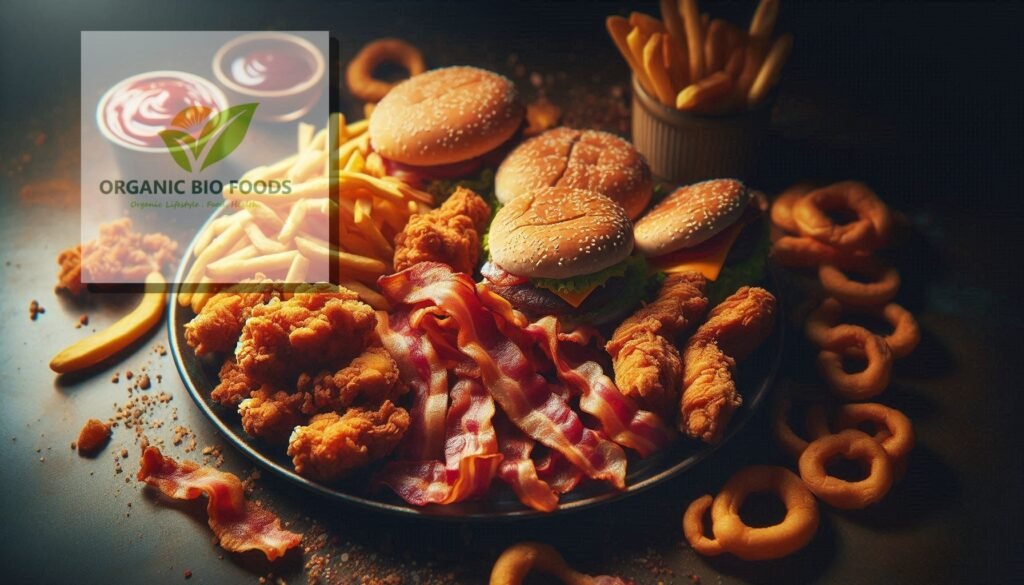If you’ve been diagnosed with high cholesterol or are concerned about heart health, making dietary changes is a critical first step. One of the main dietary culprits contributing to high cholesterol is saturated fat. Foods high in saturated fat can raise your LDL cholesterol (the “bad” cholesterol), which increases the risk of heart disease and stroke. To take better control of your cholesterol levels, it’s important to understand which high-saturated-fat foods you should avoid. If you’re keeping an eye on your cholesterol, here are six high-saturated-fat foods you should try to avoid.
1. Coconut Oil
Coconut oil has gained a reputation for being a “healthy” oil, but in reality, it’s extremely high in saturated fat. In fact, 82% of the fat in coconut oil is saturated, which is higher than butter or lard. Although some studies have shown that coconut oil can raise HDL (good) cholesterol, its effect on LDL cholesterol makes it a risky choice for people trying to lower their overall cholesterol levels.
The American Heart Association (AHA) recommends limiting coconut oil due to its high saturated fat content, noting that it raises both HDL and LDL cholesterol, which may not benefit people at risk of heart disease.
Rather than use Coconut Oil: We suggest you use oils that are high in unsaturated fats, such as olive oil, avocado oil, or flaxseed oil. These options are much better for heart health and can even help reduce cholesterol levels.
2. Butter
Butter is a staple in many households and adds richness to just about anything, from your toast to your baked goods. However, when it comes to cholesterol management, butter is one of the most significant offenders. A tablespoon of butter contains around 7 grams of saturated fat, which is about 35% of the recommended daily limit for someone on a heart-healthy diet.
According to the American Heart Association (AHA), consuming too much saturated fat from foods like butter can increase your LDL cholesterol levels, which is linked to an increased risk of heart disease.
Rather than use Butter, Try using heart-healthy fats like olive oil or avocado oil as a substitute. These oils are high in monounsaturated fats, which can actually help lower LDL cholesterol and improve heart health.
3. Fatty Cuts of Red Meat
Red meat, especially fatty cuts like ribeye, steak, or ground beef, is high in saturated fat. While red meat is a great source of protein and essential nutrients like iron and zinc, eating too much of the fatty versions can spell trouble for your heart. Fatty red meats can quickly elevate cholesterol levels.
The Harvard T.H. Chan School of Public Health suggests that regularly consuming fatty red meats increases your risk of heart disease, primarily due to their high saturated fat content.
A healthier Option to Fatty Cuts of Red Meat? : Opt for leaner cuts of meat, like skinless chicken breast, turkey, or fish, which are lower in saturated fat. You can also swap out red meat for plant-based protein options like lentils or chickpeas, which are packed with fiber and other heart-healthy nutrients.
4. Processed Meats (Sausage, Bacon, and Hot Dogs)
Processed meats like sausage, bacon, and hot dogs are among the worst offenders when it comes to saturated fat and cholesterol. These meats are typically high in both saturated fats and preservatives, which have been linked to higher cholesterol levels and an increased risk of heart disease.
The Cleveland Clinic highlights the dangers of consuming processed meats, noting that they not only increase LDL cholesterol but also heighten the risk for heart disease and even certain cancers.
As a Better Alternative, Consider switching to plant-based proteins like tofu, tempeh, or veggie sausages. These options are lower in saturated fats and can still satisfy your craving for something savory.
5. Cheese
Cheese is a delicious source of calcium and protein, but unfortunately, it’s also high in saturated fat. In fact, cheese is one of the leading sources of saturated fat in the American diet. A slice of cheddar cheese has about 6 grams of saturated fat, which is more than a quarter of the recommended daily intake for heart health.
A study published by the National Institutes of Health (NIH) shows that regular consumption of high-fat dairy products, including cheese, can increase LDL cholesterol, which is a known risk factor for cardiovascular diseases.
What’s a Healthier Choice to Cheese? If you love cheese, try low-fat or reduced-fat options. There are also plant-based cheese alternatives made from nuts or soy, which can provide the cheesy flavor without the saturated fat.
6. Baked Goods and Pastries
Who doesn’t love a good donut or a slice of cake? Unfortunately, baked goods like pastries, donuts, cookies, and cakes are often made with butter, cream, or shortening, which are high in saturated fats. Additionally, many commercial baked goods contain trans fats, which are even worse for your heart health.
According to multiple studies, consuming too many sugary and fatty baked goods can lead to weight gain, elevated cholesterol levels, and other health complications.
Better Choice: If you have a sweet tooth, try making your own baked goods using healthier fat alternatives like coconut oil or unsweetened applesauce. You can also experiment with sugar substitutes like stevia or monk fruit to reduce your sugar intake.








